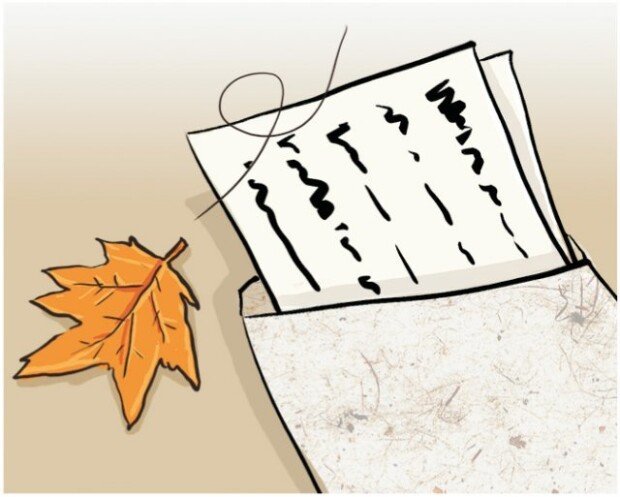A letter that is left unfinished
A letter that is left unfinished
Posted October. 21, 2022 07:42,
Updated October. 21, 2022 07:42

The wind conveys different emotions and appeals to different senses as each season passes. The heart feels the wind in the spring, while the whole body enjoys the summer wind. The ear-piercing winds of the winter blow from the North, and the autumn wind ruffles the autumn leaves on roads and pavements.
The poet suddenly reminisces about his hometown and family, probably because of the desolate landscape of the windy Nakyang Castle. Although there is much to say, which has been piled up almost to the point of burping, the poet is confounded and speechless by many wandering thoughts. He is anxious that he has missed out on writing what he has to say, even right before the moment the messenger has to leave. It is this extreme nostalgic emotion that moved the poet to “reopen the letter / when the messenger has to leave.” However, no letter can have all the one has to say. A letter remains forever incomplete, and it has to be sealed off, unfinished.
The third and fourth phrases of the poem are famous lines, as they were cited in the story of Chunhyang, where Yi Mong-ryong, a nobleman, comes across Bangja, a servant carrying the letter from Chunhyang, on the road. Citing the lines from the old poem, Yi persuades Bangja to hand over the letter so that he can read what is inside, promising that he will give it right back. Bangja, not recognizing Yi, who is in disguise, hands over the letter, wondering at Yi’s erudition, which is demonstrated by the poem Yi quotes. This poem was not only well-liked in Joseon, as shown by Yi’s recitation, but was easily written so that even an uneducated servant like Bangja could understand.



![[천광암 칼럼]장동혁은 대체 왜 이럴까](https://dimg.donga.com/c/138/175/90/1/wps/NEWS/IMAGE/2026/02/22/133399127.1.jpg)


![역대급 무관심… ‘국뽕’도 ‘환호’도 사그라진 올림픽[이원홍의 스포트라이트]](https://dimg.donga.com/c/138/175/90/1/wps/NEWS/IMAGE/2026/02/22/133397810.4.jpg)
